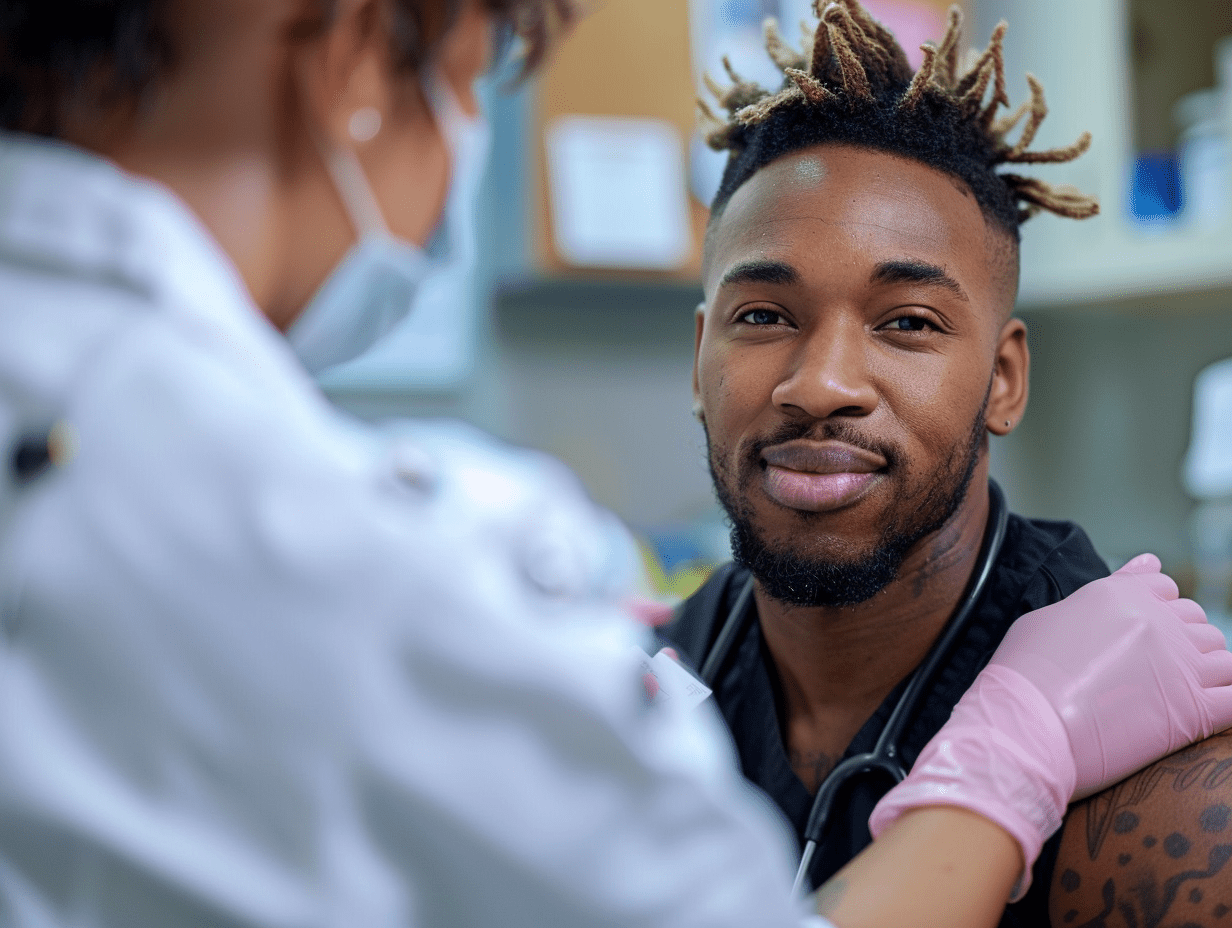In the realm of sexual health, understanding and addressing the specific needs of every community is crucial. Bisexual men — often overshadowed in discussions that focus either on heterosexual or homosexual individuals — face unique health challenges and risks that require special attention. Regular testing for sexually transmitted infections (STIs) and considering the use of preexposure prophylaxis (PrEP) drugs are critical strategies that can significantly contribute to their health and well-being. This article delves into why these health measures are not just recommendations but essential practices for bisexual men.
The importance of regular testing
Understanding the risk
Bisexual men encounter unique sexual health risks due to their sexual relationships with both men and women. This dual-risk exposure can sometimes lead to higher rates of STIs, including HIV, herpes, chlamydia and gonorrhea. Regular testing is the first line of defense in managing and mitigating these risks effectively.
Breaking down barriers
There are societal and psychological barriers that can deter bisexual men from seeking regular testing. These include stigma from both heterosexual and homosexual communities, lack of understanding from health care providers about their sexual health needs and personal reluctance due to fear of judgment. Overcoming these barriers through education and better health care practices is crucial for improving health outcomes.
Regular testing saves lives
The benefits of regular STI testing go beyond just health. They play a significant role in preventing the spread of infections to others and contribute to overall public health. Early detection of STIs usually leads to easier and more effective treatment, potentially averting more severe health complications.
Considering PrEP as a preventative strategy
What is PrEP?
Preexposure prophylaxis (PrEP) is a drug taken by HIV-negative individuals to reduce the risk of contracting HIV. For bisexual men, who may engage in sexual activities with partners of different genders, PrEP offers an additional layer of protection alongside condom use.
Effectiveness and accessibility
Studies have shown that when taken consistently, PrEP reduces the risk of getting HIV from sex by about 99 percent. Despite its high effectiveness, the accessibility of PrEP can be limited by factors such as lack of awareness, cost and perceived stigma associated with its use.
Integrating PrEP into health routines
Integrating PrEP into regular health routines can empower bisexual men to take proactive control of their sexual health. Health care providers play a pivotal role in this by informing patients about the benefits of PrEP, guiding them through the process of starting the regimen and supporting adherence to ensure its effectiveness.
Creating an inclusive healthcare environment
Educating health care providers
Training and sensitizing health care providers about the specific needs of bisexual men is essential. This includes understanding their unique health risks, effective communication strategies and the importance of creating a non-judgmental healthcare environment.
Advocacy and support
Advocacy groups and community organizations can support bisexual men by providing accurate information, resources and supportive networks. These efforts can help reduce stigma and promote a more inclusive society that acknowledges and addresses the needs of bisexual individuals.
Empowering bisexual men for a healthier tomorrow
The importance of prioritizing the health of bisexual men within the broader sexual health and rights agenda cannot be overstated. Regular testing for sexually transmitted infections (STIs) and serious consideration of preexposure prophylaxis (PrEP) are vital, not just as recommendations but as essential actions for maintaining robust health. By fostering a supportive and inclusive health care environment, we ensure that bisexual men are afforded the resources and support necessary for leading healthy, fulfilling lives.
However, this is not merely about promoting health; it is about affirming the dignity and worth of every individual, regardless of their sexual orientation. A more inclusive approach in health care can help alleviate the stigmas that often prevent bisexual men from seeking timely medical advice or interventions. Engaging in regular health checkups and embracing preventive measures like PrEP are crucial steps toward building a safer, more informed community.
As we move forward, we must continue to educate health care providers, advocate for equitable treatment and support bisexual men in all aspects of their health. Doing so not only enhances their well-being but also enriches our society by creating an environment where everyone — irrespective of their sexual orientation — has the opportunity to thrive. This commitment to health equity will pave the way for a brighter, more inclusive future.
This story was created using AI technology.














